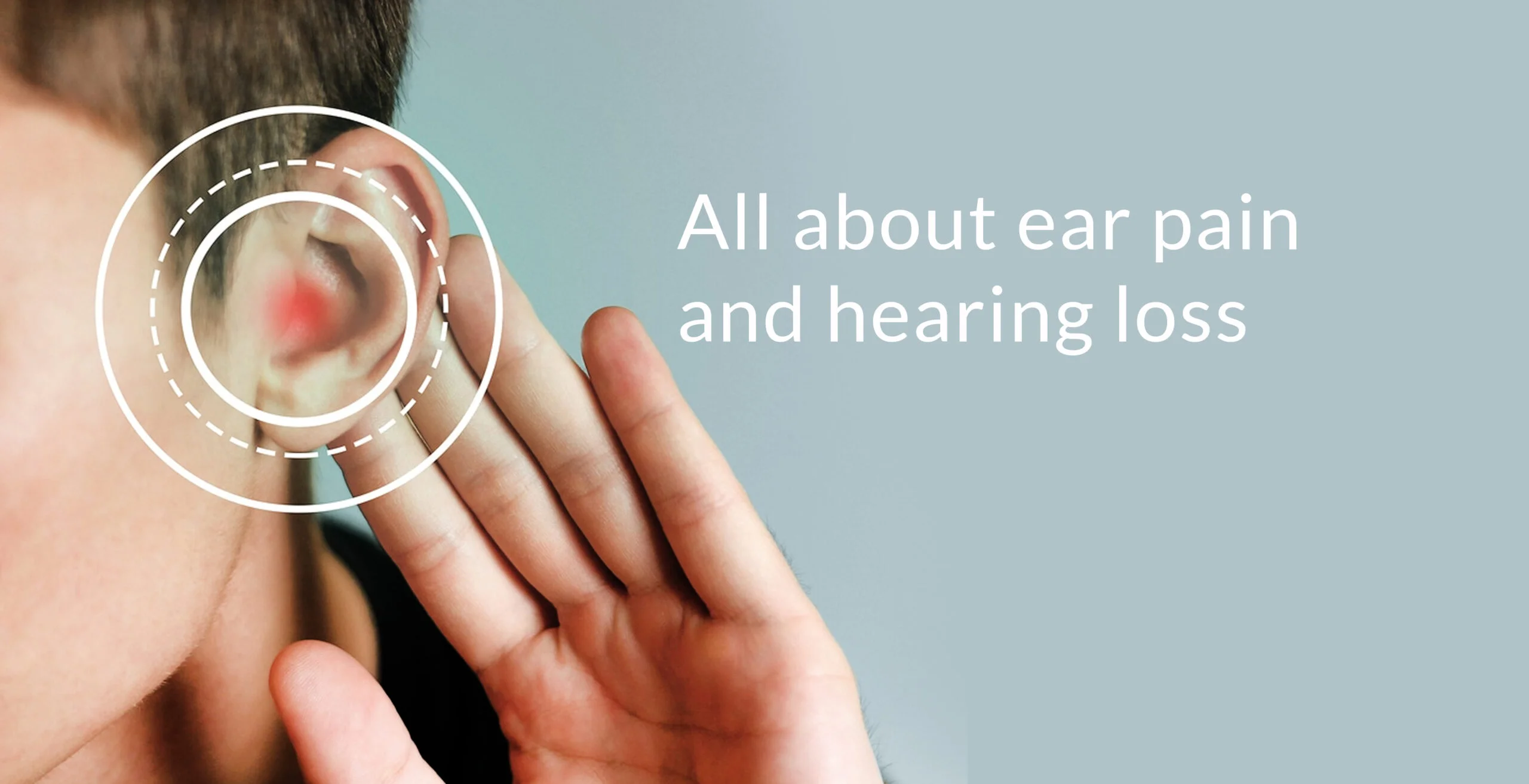All about Ear pain and Hearing loss
Ear pain affects all age groups at least once in lifetime. Pain that starts within the ear is called primary otalgia, while pain that originates outside the ear is called secondary otalgia. Ear pain can come up slowly but surely or suddenly. The pain can feel burning, sharp, or dull, and can be short-term or continuing. Typically, the pain occurs in an ear, but at times it can emerge in both ears.
Common symptoms of ear pain:
- Discharge from the ear
- Fever
- Headache
- Hearing loss
- Difficulty chewing
- Popping or clicking
- Increased crying (in kids)
- Jaw pain
- Loss of appetite (in kids)
- Irritability and fussiness (in kids)
Hearing loss occurs gradually as you age and is common. Chronic exposure to loud noises and aging both contribute to hearing loss. Other factors, such as extreme earwax, eardrum perforation etc. can provisionally decrease ear function.
Common symptoms of hearing loss are:
- Muffling of speech and other sounds
- Problem understanding words, particularly in a crowd or against background noise
- Problem hearing consonants
- Avoidance of some social settings
- Frequently asking others to speak more loudly, clearly, and slowly
- Withdrawal from conversations
- Listening to the television or radio in high volume
Treatment
If you have hearing issues, assistance is available. Treatment relies on the severity and cause of your hearing loss. Options comprise:
- Surgical procedures: According to the renowned physicians in ENT Clinics in Gurgaon some kinds of hearing loss can be treated with surgery, including anomalies of the eardrum or bones of hearing. If you have had repeated infections with persistent fluid, your physician may insert small tubes that assist your ears drain.
- Eliminating wax blockage. Earwax blockage is a reversible cause of hearing loss. Your doctor can eliminate earwax using suction or a small tool with a sphere on the end.
- Cochlear implants. ENT Specialists in Gurgaon say that if you have more severe hearing loss and gain limited advantage from conventional hearing aids, then a cochlear implant might be an option. Unlike a hearing aid that enhances sound and directs it into your ear canal, a cochlear implant bypasses damaged or nonworking parts of your inner ear and stimulates the hearing nerve directly. An audiologist, together with a medical doctor who specializes in disorders of the ears, nose and throat (ENT), can talk about the risks and benefits.
- Hearing aids. In case your hearing loss is because of damage to your inner ear, a hearing aid can be useful. An audiologist can talk about the prospective benefits of a hearing aid and fit you with a device. Open fit aids are at present the most popular, because of fit and features offered.
Hearing loss can have an important effect on your quality of life. Older adults with hearing loss might report feelings of despair. Hearing loss can make conversation hard, some people experience feelings of isolation. Hearing loss is also related to cognitive impairment and decline. But with proper treatment one can get cured.






_Painful.webp)






